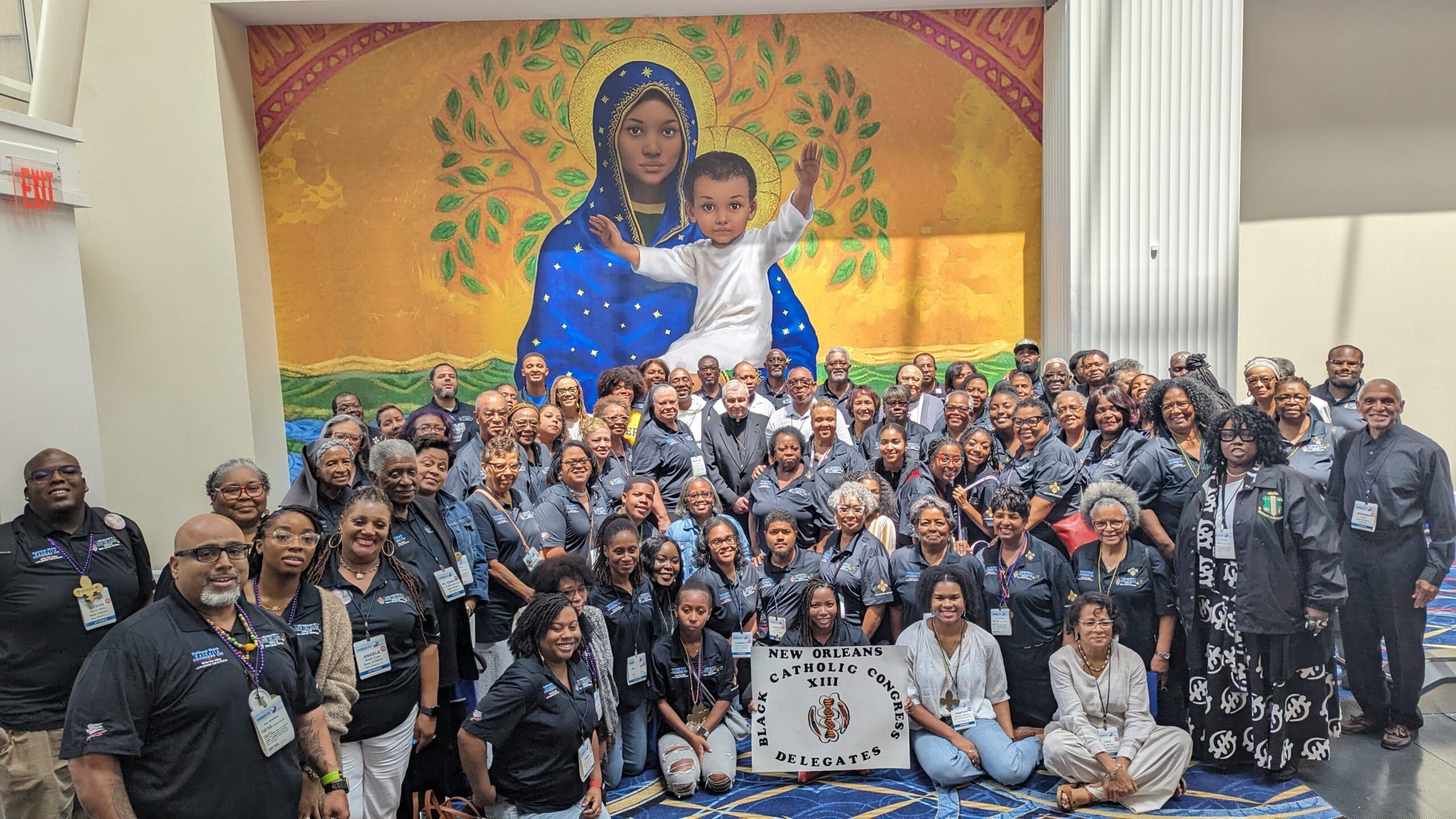Years pass, the questions echo: Are Black Catholics truly ‘seen and heard’? (Column)
For Black Catholics, Sept. 9, 1984, was a significant date in history: the 10 Black bishops ministering in the United States delivered to the church their pastoral letter “What We Have Seen and Heard: A Pastoral Letter on Evangelization from the Black Bishops of the United States.”
Its purpose was to serve as a testimony to the Black community while also educating their brother bishops in America. The document is about the shared gifts within the Black Catholic community that, as Sister Thea Bowman, now a servant of God, so eloquently told the bishops in 1989, are rooted in African heritage. It also discussed obstacles to evangelization that must be overcome.
The year 1909 included another historical moment, when the Knights of Peter Claver were founded as a way to support the needs of Black Catholics from a fraternal perspective. This followed by 20 years the assembly of the first Black Catholic Congress, established in 1889 by Ohio journalist Daniel Rudd and attended by Father Augustus Tolton, the first African American priest to be recognized as such in the United States. (He is now declared “venerable” and on the path to canonization).
These three important events each spoke to a deep need within the Black Catholic to be “seen and heard,” a need that continues today.
July 2023 was a busy month for Black (specifically African American) Catholics seeking to address that still pressing need. The Knights of Peter Claver, Ladies Auxiliary and Junior Divisions held their first-ever joint convention in New Orleans July 14-19. Immediately following, the 13th National Black Catholic Congress took place near Washington July 20-23.
Nearly 2,000 people were in attendance for the Knights’ annual convention, with about 3,000 participating in the National Congress, which takes place every five years. Both events featured numerous workshops, speakers, networking socials and various other events. Both also continued to ask the urgent question: Where do we, as Black Catholics, fit within the church we have long been a part of and have faithfully served since ancient days?
Both events were blessed by the participation and liturgical presence of several prelates, Black and non-Black, but the contributions of Washington’s own Wilton Cardinal Wilton D. Gregory, the first African American cardinal in the history of the church, were especially inspiring. In his homilies at both events, Cardinal Gregory reminded us that Black Catholicism is a gift to the Church, and of our need to continue to be present — in our authentic way — while also creating opportunities to engage our young people.
Both conferences had specific sessions dedicated to youth in attendance, with a standout moment occurring at the Congress, where Cardinal Gregory and Bishop J. Terry Steib moderated a “townhall.” Amid lots of questions and exchanges between the young people and the prelates, the cardinal challenged participants: “I know all of you have a lot of dreams right now, of possibilities for your life. What would God want you to do? …What would you do in life that makes you and God happy?”
The social justice issues faced by Black communities throughout the country were discussed at both gatherings — specifically the problems of racism, violence, economic distress, mass incarceration, and the gentrification that is slowly but irrevocably leading to the erasure of our history and our safe spaces (churches, schools, towns, etc). We were reminded that it is our job as people of faith to step up and step out — to address these ills while remaining vigilant at holding our church accountable, and that we must urge Catholics at diocesan and national levels to join us in tackling these problems.
Although these two events delivered powerful moments of revitalization and motivation for attendees, the question of real inclusion in the church remained. Many of the youthful attendees wondered why we remain in a church that has hurt us in the past and in the present. This was a question that also came up during the Congress’ young adult gathering at St. Joseph’s Seminary.
It feels like we are asking the same questions in 2023, and facing similar issues, that were asked and faced in 1889 at that first National Black Catholic Congress gathering, and again in 1909 when the Knights of Peter Claver were founded, and again in 1984 with the publication of “What We Have Seen and Heard”: When will the problems facing the Black community become the wider church’s problems, too?
–How can the Catholic Church claim to be a body of Christ when one part — that has helped to shape the church in monumental ways — has been cast aside, despite its faithfulness, even amid criticism from Black folk in other denominations and faith practices?
–What will it take for the church to “hear and see” us — especially our youth and young adults who cannot see their place in this space?
Being heard and seen is vital to human flourishing, and within a church community no one should have to go begging for either. African American Catholics gather and pray together, and our prayer is not just for ourselves but for the whole church. There is work that needs to be done, but it is not only the work of Black Catholics. It is work that needs to be taken up and embraced by the wider Catholic Church, so that faithful Black Catholics everywhere can truly feel like they — and their gifts — are truly “seen and heard.”
This column was written by Ansel Augustine, the director of the office of Black Catholic ministries for the Archdiocese of New Orleans.
Featured image: Pictured are a number of the Archdiocese of New Orleans Delegation that attended the National Black Catholic Congress XIII that took place in Washington July 20-23, 2023. (OSV News photo/courtesy Ansel Augustine)


